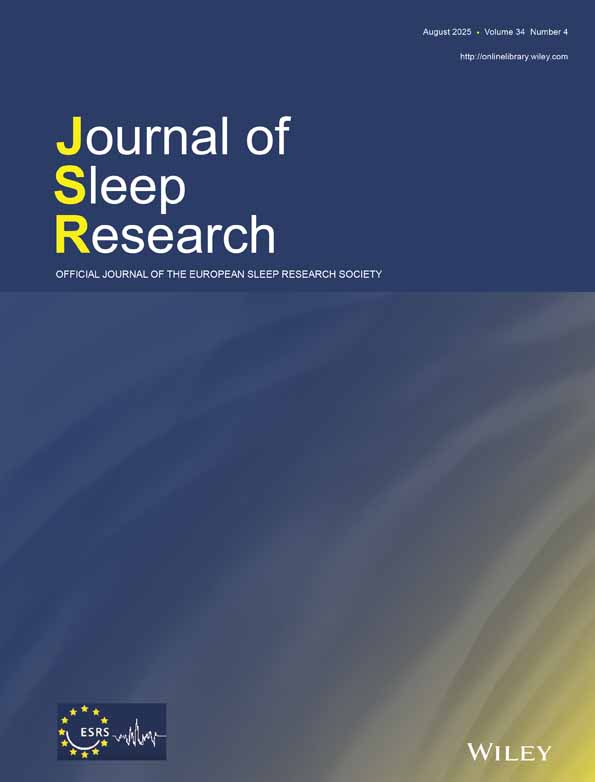Social jetlag decreases across the lifespan: A prospective big data analysis of objective sleep metrics
Roy J. Raymann and Nathaniel F. Watson indicate joint senior authorship.
[Correction added on 01 February 2025, after first online publication: In the preceding sentence, the word ‘social’ has been added before the word jetlag.]
Summary
Changes in social zeitgebers across the lifespan affect the interaction between biological and social clocks, potentially contributing to social jetlag. Extant literature suggests a reduction in social jetlag given declining social obligations occurring after retirement, but is limited to self-reported methods and cross-sectional designs. Leveraging longitudinal and ecologically valid data from consumer sleep technology, we analysed objective sleep data from 2439 users of the polysomnography-validated SleepScore mobile application, encompassing 500,415 total nights recorded. We examined the relationship between age as a continuous variable, age as a proxy for retirement status, and social jetlag. Additional linear models were employed to assess the effect of self-reported chronotype, average reported daily caffeine, alcohol and stress on social jetlag. There was a significant negative association between overall age and social jetlag (β = −0.64, t = −9.90, p < 0.001, effect size = 0.040), such that every 1-year increase in age corresponded with a 0.64-min reduction in social jetlag. The inclusion of self-reported chronotype, stress, caffeine and alcohol increased the explanatory power of our models slightly, but the effect of age remained consistent (β = −0.642, t = −8.91, p < 0.001, effect size = 0.046). Retirement-aged individuals exhibited nearly 50% less reduction in social jetlag than pre-retirement (30.6 ± 48.2 min versus post-retirement: 15.8 ± 41.6 min, p < 0.0001). While social jetlag after retirement was most pronounced for strong evening chronotypes (β = −0.41, t = −2.876, p = 0.004, effect size = −0.4276), pairwise comparisons revealed no statistically significant differences in the slopes between chronotypes (p > 0.05). Thus, social jetlag decreases across the lifespan, and its reduction appears to be amplified post-retirement even after accounting for behavioural factors.
CONFLICT OF INTEREST STATEMENT
SG has no conflicts of interest to disclose. EG and LG are employed by SleepScore Labs with compensation, and EG also has stock options. RJR has consulted for SleepScore Labs with fees. NFW holds stock or stock options from SleepScore Labs.
Open Research
DATA AVAILABILITY STATEMENT
The data that support the findings of this study are available from SleepScore Labs. Restrictions apply to the availability of these data, which were used under license for this study. Data are available from the author(s) with the permission of SleepScore Labs.




